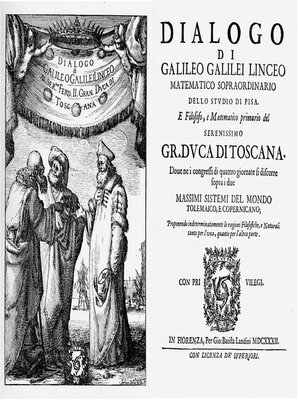Dialogue Concerning the Two Chief World Systems
audiobook (Unabridged) ∣ Ptolemaic and Copernican
By Galileo Galilei

Sign up to save your library
With an OverDrive account, you can save your favorite libraries for at-a-glance information about availability. Find out more about OverDrive accounts.
Find this title in Libby, the library reading app by OverDrive.



Search for a digital library with this title
Title found at these libraries:
| Loading... |
Galileo's Dialogue Concerning the Two Chief World Systems compares the Copernican or Heliocentric system with the Ptolemaic or Peripatetic, system of the cosmos. Published in Florence in 1632, it resulted in him being tried before the Inquisition. Using the dialogue form, Galileo masterfully shows the truth of the Copernican system that the earth revolves around the sun. The Dialogue is one of the most important treatises ever written. A work of supreme clarity and accessibility, it remains as accessible now as when it was published. This is the definitive text by the University of California Press, with Stillman Drake's translation. It includes a Foreword by Albert Einstein, read by Frank Wilczek. Galileo's dedication is read by Fabiola Gianotti, and the Translator's preface is read by Sylvester James Gates.
The book is presented as a series of discussions, over four days, among two philosophers and a layman:
Salviati, read by Carlo Rovelli, argues for the Copernican position, presenting Galileo's views, calling him the "Academician" in honor of Galileo's membership in the Accademia dei Lincei. He is named after Galileo's friend Filippo Salviati.
Sagredo, read by Brian Keating, is an intelligent layman who is initially neutral. He is named after Galileo's friend Giovanni Sagredo.
Simplicio, read by Lucio Piccirillo, is a dedicated follower of Ptolemy & Aristotle, presents the traditional views and the arguments against the Copernican position. He is supposedly named after Simplicius of Cilicia, a sixth-century commentator on Aristotle. It's believed his name is a double entendre for the Italian for "simpleton". Simplicio is based on philosophers Lodovico Colombe, Galileo's opponent, and Cesare Cremonini, who refused to look through the telescope.
Download all figures & Illustrations from The Dialogue: https://briankeating.com/Galileo






